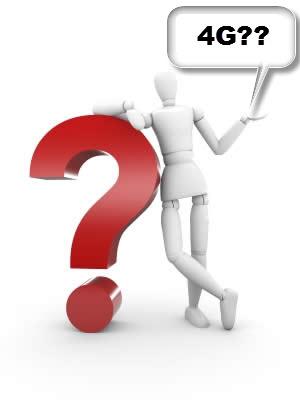
As time progresses, our phones become more and more capable. We can do things on our phones now that the average computer from 2000 couldn't do, and we can do it faster. Checking up on the world while driving down the road – albeit dangerous – is perfectly doable. I never would have imagined myself doing something like that seven or eight years ago. I still thought getting a laptop would have been the best thing to ever happen to me.
Now, here I am with eight or nine phones laying around me, all capable of doing about everything I would have ever done with a laptop, not to mention the iPad that I generally use more than my laptop. The point is, the more we can do with phones, the more we will do with them. You're browsing the web, updating your Facebook, checking into the gas station, and texting your girlfriend all while pumping your gas, and your phone doesn't even think about slowing down. However, if everyone in your city did this at the same time, the network would bottleneck. We saw evidence of this in December of '09 with the iPhone in New York. AT&T stopped selling the iPhone in NY in order to prevent it from getting any worse while they worked on the network.
As it stands, the iPhone is no longer the data network-eating king, Android took that crown. A study was done showing that Android (the two stated were the HTC Desire and Samsung Galaxy S) phones uploaded up to 126% more data than the benchmarked iPhone 3G. Android-powered phones are now the SUVs of the mobile world. With 300,000 Android handsets are being activated on a daily basis, doesn't that spell doom for carriers' networks.
Enter the term "4G."
Wireless service providers worldwide have been pushing the term “4G” like it's going out of style, tagging it on the end of everything, even if their network isn't technically 4G. Was this movement meant to excite customers with faster speeds? Don't bet on it, not originally at least. It's, among other things, a survival tactic. Throwing around the “4G” term is just a marketing ploy to mask what is a much needed update. That doesn't mean I'm not excited for it though, I'm thoroughly impressed with some of the speeds I've seen and heard of.
US carriers learned from AT&T's unfortunate New York mishap and they're reacting, trying to prevent a recreation of that. With netbooks, tablets, and very capable phones pushing 3G networks to their limits, Big Red, T-Mo, Ol' Blue, and Sprint are doing what they absolutely have to do before they watch their networks crumble before their own eyes.
Everyone lashed out at Mike Lazaridis, Co-CEO of RIM, at MWC in February this year when he said that bandwidth needs to be conserved. He certainly knew what he was talking about, regardless of whether it was what consumers wanted to hear. BlackBerrys are a networks' best friend with their extremely compressed data and very light network footprint, but the data experience leaves a lot to be desired. But other manufacturers have been throwing phones into the pool running operating systems that eat up data like it's in endless supply. If a balance between the two had been used, this would be a luxury upgrade rather than an absolutely necessary update.
Image via TmoNews